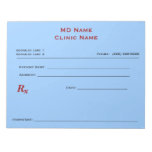
Aside from clinical services, billing and revenue cycle management (RCM) are the most important processes of your practice. Your cash flow depends on them, so the decision of how to handle these services shouldn’t be taken lightly. You should do thorough assessments of your practice’s cost, staffing, and volume metrics to determine what’s right for you.
In the preliminary stages of the decision-making process, however, you’ll need to take a generalized look at what most doctors and administrators consider to be the major advantages and disadvantages that the in-house and outsourcing options each present.
In-House Medical Billing
Pros
Retaining Control: Especially when trusted, long-term employees execute medical coding and RCM duties, doctors and administrators appreciate the hands-on control of financial operations possible with in-house billing.
Return on Investment: Once a practice has invested in training billers and purchasing medical billing software, moving to an outsourced solution can mean losing time and money spent. If you have a valid infrastructure in place, it can be worthwhile to refine existing processes to generate the best ROI.
Close Proximity: Should issues arise, the accessibility of your in-house billing department can be a major advantage, especially when a walk across the office is all it takes to observe the billing process and address any problems.
Cons
Higher Costs: It’s generally accepted that the expenses of paying medical biller salaries, providing employee benefits, and purchasing technology systems exceed the typical costs associated with a third-party billing solution.
Liabilities: Medical billing departments can be hotbeds for embezzlement, and general employee neglect (think ignored encounter forms, discarded superbills, and unappealed claim denials) can go largely unnoticed if managers don’t keep a stringent eye on billing operations.
Support Issues: If your billing department consists of only two or three staffers, your operations – and cash flow – can experience a significant decline when even just one employee gets sick, goes on vacation, takes a leave of absence or quits altogether.
Outsourced Medical Billing
Pros
Less Expense: If you’re starting up a new business or transitioning because of an employee’s resignation, outsourcing can make the most financial sense. Check out this hypothetical cost analysis on the topic from Physicians News Digest.
Transparency: A medical billing company should supply you with comprehensive performance reports automatically or upon request. This capability grants you unparalleled visibility into your billing operations without requiring you to micromanage – or even oversee – any staffers.
Enhanced Consistency: Your outsourcer will be contractually obliged to perform certain services, such as appealing denials, with a certain level of success. Plus, you never have to worry about medical billing staffing, because it’s their job to support your needs year-round.
Cons
Hands-Off: While outsourcing medical billing is a logical choice for some practices, especially those practices that prefer a third source manage their billing hassles, it’s tough for more hands-on managers to relinquish control of the process to another entity.
Variable Cost: Most medical billing companies charge a percentage of collections, so the more you bring in, the more you’ll pay out. This can make it more challenging to budget your practice’s expected billing expenses, because costs differ widely between slow and busy months.
Hidden Fees: Read any outsourcing contract very carefully. Are there startup charges? Fees for things like printing statements or sending reports? What happens if you cancel your membership? Make sure the money you save by outsourcing isn’t offset by a multitude of “fine-print” charges.













No comments:
Post a Comment